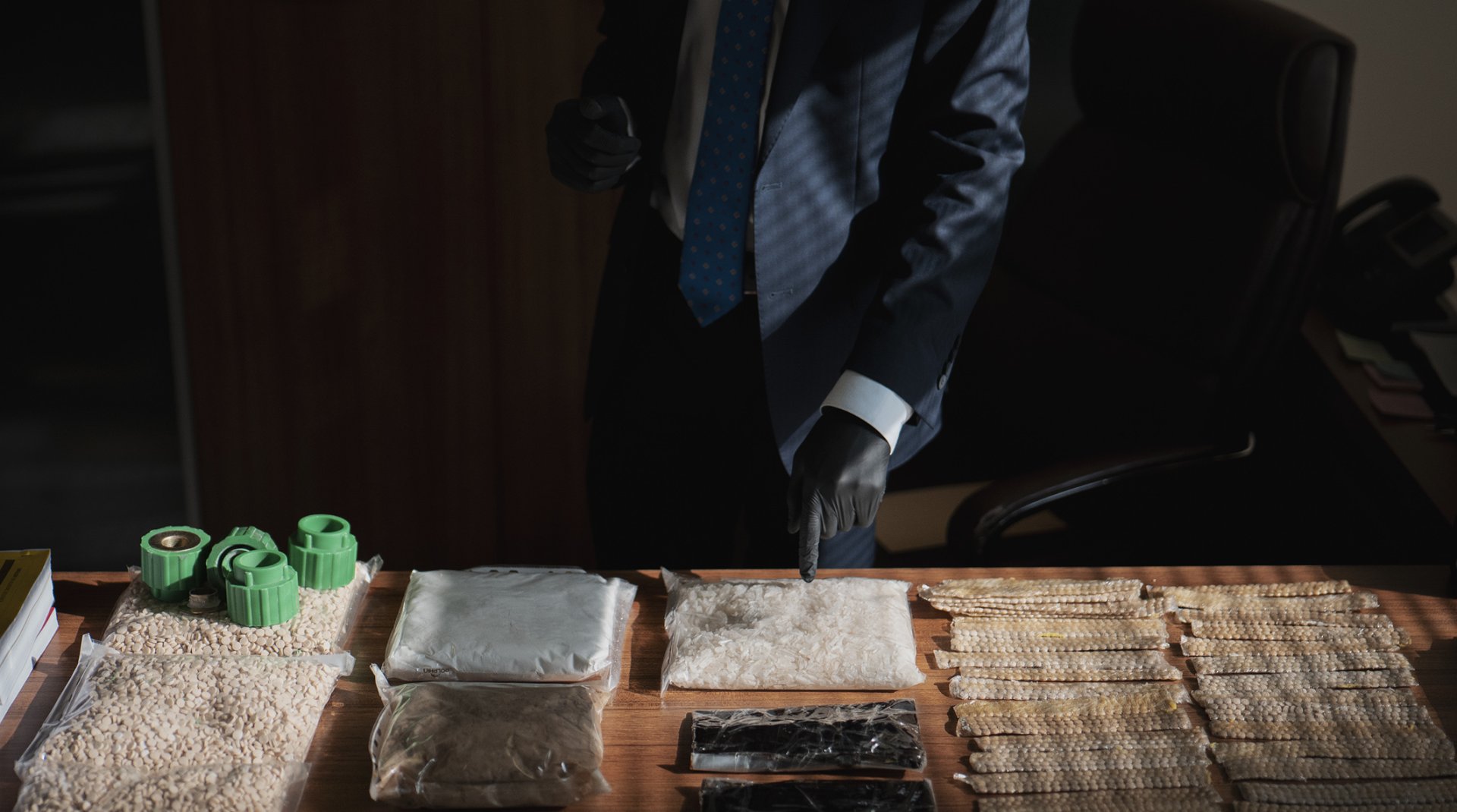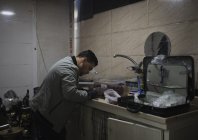Login or register for free to continue browsing
Access all this year’s exclusive online content

The Iraqi captagon and synthetic drug crisis
Alfredo Bosco
Winner of the 2025 Ville de Perpignan Rémi Ochlik Visa d'or Award
Iraq is experiencing a notable surge in drug trafficking. Sales and distribution have increased in its poorer urban neighborhoods and in its southern territories. This has prompted the Iraqi authorities to implement stringent measures to prevent the spread of drug use. The two main drugs involved are “captagon” (fenethylline) and “crystal meth” (methamphetamine). Captagon is produced in Syria, and, according to the Iraqi authorities, crystal meth is produced in laboratories in Iran.
The civil war that began in 2011 has devastated and impoverished Syria. The country has rapidly transformed into a narco-state, generating billions of dollars from captagon production and trafficking. For example, in 2021, the captagon trade was estimated to be worth $5.7 billion (New Lines Institute report). When Syria was readmitted to the Arab League in May 2023, the al-Assad government pledged to reduce drug trafficking and the amount of drugs entering Jordan. However, this strategy only resulted in the drugs being redirected to the Rojava territories. These territories have been continuously targeted and destabilized by the Turkish army and therefore struggle to control trafficking along the Syrian-Iraqi border. The same thing is taking place in the Kurdish territories of Iraq. An increase in captagon-related arrests in 2023 suggests that traffickers are increasingly using the country as a transshipment route.
Preview





